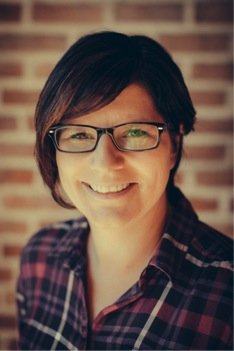What do you love most about your profession? Why did you choose this career?
I chose this career because I wanted to help make the world a better place, and I feel that I get to do that by helping educate engineers who care about their place in the community, and who are concerned about their obligations to protect the public and the environment. I also wanted a career that would ensure I was financially independent and would provide me with the resources to do the things I love in life.
When did you realize you wanted to work in STEM or Skilled Trades?
At first, I really didn't know what I wanted to do but I knew I wanted to have a job that made a difference in people's lives. I attended a Women in Science and Engineering event in grade 12 and that's where I first learned about engineering career options and I knew right away that was the path for me. When I read the description of civil engineering in the MUN course calendar, I knew that would be my first choice. It was focused on making people's lives safer and healthier through infrastructure design. What's cooler than that?
Why do we need more women in STEM and Skilled Trades?
Engineers make the world a better place. In fact, our first duty is to protect the public and the environment. Engineers are helping bring people together, supporting communities, making things safer, and more sustainable. The demand for engineers in Canada is high, and it is expected to remain high in the future. To effectively tackle future challenges and opportunities, we need women in engineering. To do our best work, we need engineers to be as diverse as the communities in which we practice. The same is true for other STEM and skilled trades fields.
What does your typical workday involve? Can you work remotely? (indoors/outdoors, office/plant, travel time, teamwork/solo work)?
Typically, I work indoors these days although some projects do still take me outdoors. I get to travel quite a bit as well. Most of my work is with other people. I teach lots of students and I get the opportunity to collaborate with my colleagues.
Who is your role model? What is it about this person that inspires you?
Janet Bradshaw, the CEO of Professional Engineers and Geosciences Newfoundland and Labrador. She blazed the trail for women in engineering here in our province. She graduated when the number of women in her class was incredibly low. She went on to have an extremely successful career, overcoming innumerable challenges. Now, she leads the organization that regulates our profession. She always has time in her busy schedule to give advice and guidance. She's one of the most caring, intelligent and capable people that I know.
What do you do for fun? What are some of your hobbies/activities?
I love to travel (back before Covid). I like to read, play poker and participate in trivia tournaments.
What advice would you give students who might be considering a career like yours? What advice would you have given your younger self?
I didn't take chemistry and physics in high school because I didn't know until Grade 12 that I wanted to be an engineer. But, I was still able to go to engineering school. I just had to pick up a few extra courses in my first year at university. My advice is that it is never too late to change the path you are on. I think it is important for any young person to know that sometimes we all feel like we are not good enough at something, or that we aren't smart enough or capable enough. Recognizing how common those feelings are helped me get over my lack of confidence in my abilities - though I still have days when I doubt myself. We all do.


